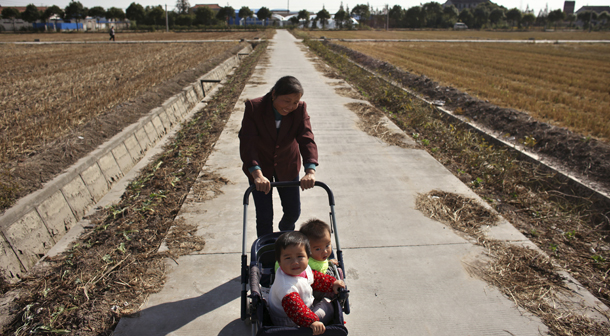BEIJING—Cases of people being forcibly evicted from their homes and land have risen significantly in China, becoming the single greatest source of public discontent and a serious threat to social and political stability in the country, Amnesty International said Thursday.
Forced demolitions have long been a way of life in China. Decades of economic growth have been driven by real estate development, much of it on the backs of millions of residents forced to relocate to make way for factories and business ventures.
But evictions have escalated over the past three years during a nationwide construction boom spurred by massive stimulus spending after the global financial crisis, the human rights group said in a report that cites Chinese housing rights activists, lawyers and academics.
Local authorities seize and then sell off land in suspect deals with property developers, relying on land sales to help pay off huge debts incurred to finance stimulus projects, the report said.
Developers often hire thugs to threaten residents, sometimes with violence.
Of 40 forced evictions that the group said it examined in detail, nine culminated in the deaths of people protesting or resisting eviction. In one case, a 70-year-old woman was buried alive by an excavator as she tried to stop workers demolishing her house in Wuhan city in central Hubei province, the report said. In another, police in Wenchang city in southern Sichuan province were reported to have taken custody of a baby and refused to return him until his mother signed an eviction order.
Some people who resist forced evictions end up in prison or in labor camps. Amnesty said a woman in Hexia township in southeastern Jiangxi province who petitioned authorities about her eviction was beaten and forced to undergo sterilization.
Some despairing residents have set themselves on fire. Amnesty said it documented 41 cases of self-immolations that occurred between January 2009 and January 2012.
Amnesty International called on authorities to immediately halt all forced evictions, ensure no one is made homeless as a result of forced eviction and punish and prosecute those who use violence during the eviction process.
Questions seeking comment from the Ministry of Housing and Urban-Rural Development were faxed to them at their request Thursday. They did not immediately respond.
The government technically owns most land in China and can seize property for projects deemed in the public interest. Compensation is supposed to be given to residents who are evicted, but that does not always happen or is not always fair.
Amnesty said there are no reliable estimates of the number of people who have been forced from their homes or farms, “but there is little doubt the figure has risen significantly.”
“The problem of forced evictions represents the single most significant source of popular discontent in China and a serious threat to social and political stability,” the report said.
China’s authoritarian government is highly sensitive to the notion of instability, signaled by its control over the media and Internet, and military crackdowns in regions such as Tibet, fearing protests there against Chinese rule could inspire people in other parts of the country with grievances against the government.
Amnesty said one problem is that the ruling Communist Party continues to promote local officials who deliver economic growth, however it is achieved, and land redevelopment — for roads, factories or housing — is seen as the most direct path to visible results.
“The Chinese authorities must immediately halt all forced evictions. There needs to be an end to the political incentives, tax gains and career advancements that encourage local officials to continue with such illegal practices,” said Nicola Duckworth, Amnesty senior director of research.

















